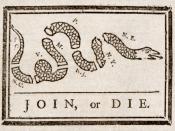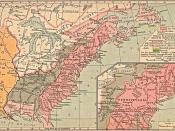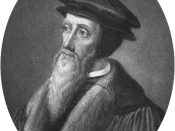The eighteenth century was a pivotal period in the continuing struggle between the secular and the spiritual.
The Protestant Reformation had lost its fury. Thanks in part to the
riches of the New World, people on both sides of the Atlantic were experiencing a commercial bonanza that was bringing to many persons a standard of living heretofore reserved only for kings and the nobility. The
"new science" was making itself felt. Many hoped to unlock the mysteries of the natural world and create a technology capable of transforming human existence. So excited were the supporters of the new science that some
began to suggest that the "scientific method" could be applied to human affairs as well. They argued that if scientists could discover the laws of nature and turn those to human needs, then they should also be able to
unlock the laws governing human social arrangement and build a more perfect order.
These persons were the forerunners of the modern "social scientist," and in the course of their musings about history and society, they invented a new word and a new concept-progress. They believed that by
discovering the laws of nature and society and applying that knowledge to human existence, humans could create a sort of social escalator, achieving higher and higher levels of material existence until finally arriving at the
utopia that lay at the top. It was a view that is still very much a part of our own thinking.
The disciples of the new science and the new social science placed their faith in the powers of human reason, and their movement became known as the
Enlightenment. They had little use for organized religion, although they did not deny the existence of God. They created their own religious movement-Deism (many of the leaders of the American...


